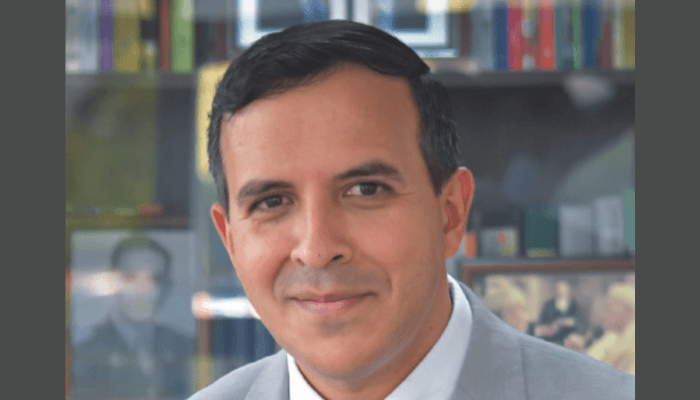Law-rich, trust-poor: Inside Franceschi’s lesson to Africa’s leaders at BeDoCare 2025
…Unveils AI “Avatar Ministers”
When Luis Franceschi, assistant secretary general of the Commonwealth, took the stage at the BeDoCare 2025 conference in Nairobi, he began not with policy jargon or diplomatic niceties, but with a story about fried spiders and scorpions in Bangkok.
Africa, he said, has been “eating spiders and scorpions,” trying to cleanse corruption with new laws instead of building justice.
“No matter how much we fry a spider, it remains a spider,” he said. “And no matter how much chilli you sprinkle on a scorpion, it remains a scorpion.”
Read also: Global leaders to tackle digital divide for 2.6bn unconnected at WTDC-25
Beneath the humour was a truth about the continent’s governance model, one that mirrors a system where leaders and institutions act rationally in their self-interest, even when it undermines the collective good.
“The more laws we pass, the less justice we seem to have,” Franceschi said. “Without justice as the foundation, even the strongest bridges and the best airports will eventually collapse, they are houses built on sand.”
A continent full of laws, empty of trust
The Kenyan citizen spoke with the candour of an insider who has seen too many well-written constitutions crumble under bad politics.
Across Africa, he said, citizens live under some of the world’s most elaborate legal systems. Yet, trust in government, parliaments, and courts is falling. Afrobarometer data shows that the share of Africans who prefer democracy has fallen from 73 percent in 2014 to 66 percent in 2024, while trust in courts and parliaments is plummeting.
Franceschi argued that the continent has become obsessed with legislating problems instead of fixing them. When corruption scandals break out, leaders rush to create new agencies or committees. When the public loses faith in elections, governments announce constitutional reviews.
“We keep sealing holes in the wall,” he said, “instead of fixing the foundation.”
It is a pattern ordinary citizens recognise. Every reform comes with fanfare, yet the results are painfully familiar. Jobs remain scarce, prices keep rising, and people still bribe to access services that should be free. The incentives for those in power never change.
The cost of corruption, counted in schools and hospitals
Franceschi broke down what corruption really costs Africa. Each year, the continent loses between $100 billion and $148 billion to financial crimes, money siphoned through trade misinvoicing, inflated contracts, and procurement fraud.
“If we used that money well,” he said, “Africa could build 200,000 new schools, 10,000 hospitals, 10,000 kilometres of paved roads, and still have billions left for refineries and innovation.”
By comparison, all the development aid Africa received last year was only US$36 billion, four times smaller than what corruption drains annually.
This, he suggested, shows that the continent is not poor but poorly governed. The wealth that should serve millions often ends up concentrated in the hands of a few, politicians, contractors, and cronies. The costs are spread thinly across society, in classrooms without chairs, hospitals without oxygen, and youth left idle without jobs.
When democracy becomes a game of appearances
Franceschi’s critique went further. He said the decline of trust is not only economic but political. “In at least five of our so-called African democracies, opposition leaders are in prison,” he said. “We are invited to observe elections where there is only one horse in the race, no matter how different the colours look.”
His words echoed a familiar frustration: elections have become rituals rather than choices. Leaders speak of democracy while bending institutions to protect themselves. The public sees through it but feels powerless to change it.
Yet Franceschi did not dwell on despair. He cited examples of hope, Mauritius, Botswana, Ghana, Malawi, and Zambia, where leaders have lost elections peacefully.
In those places, he said, trust, not law, is the real backbone of democracy. “Trust cannot be legislated,” he warned. “But without it, no law can save a country.”
Read also: Global leaders welcome plans to end bloody war in Gaza
When technology meets ethics
Midway through his speech, Franceschi introduced ‘Avatar Ministers.’ Developed by the Commonwealth, these digital assistants for health, law, and finance will help presidents make faster, evidence-based decisions.
The idea is simple, he said, it uses artificial intelligence to simulate expert advice, improving coordination in countries where bureaucracy is slow and expertise scarce.
Still, Franceschi’s point was not about machines replacing people. “Even an avatar cannot fix moral failure,” he said. Technology can assist leadership, but it cannot substitute integrity.
In that sense, the avatars symbolise Africa’s double-edged modernity: governments chase innovation and digital solutions, while the ethical foundations of governance remain weak. The future, Franceschi implied, cannot be built on code alone.
The real infrastructure is character
Franceschi ended his address with a reminder that Africa’s greatest infrastructure project is not a highway or a port, but character.
Quoting Singapore’s Lee Kuan Yew, he said the three pillars that transformed Singapore, meritocracy, pragmatism, and honesty, can do the same for Africa if leaders embrace them.
“Leadership requires both competence and character,” he said. “It is not enough to be a skilled professional; you must also be a good human being.”
Africa’s biggest challenge, he argued, is not external interference or lack of resources but a moral crisis within.
“We cooked the spiders and scorpions ourselves,” he said. “The West may have helped, but we served the meal.”
As he closed, he warned that if the continent wants change, it must stop mistaking legal motions for moral progress. “Good governance without justice, and justice without ethics, are just empty promises,” he said.

